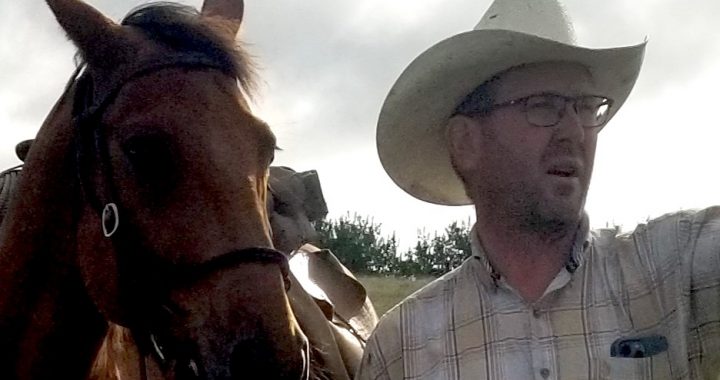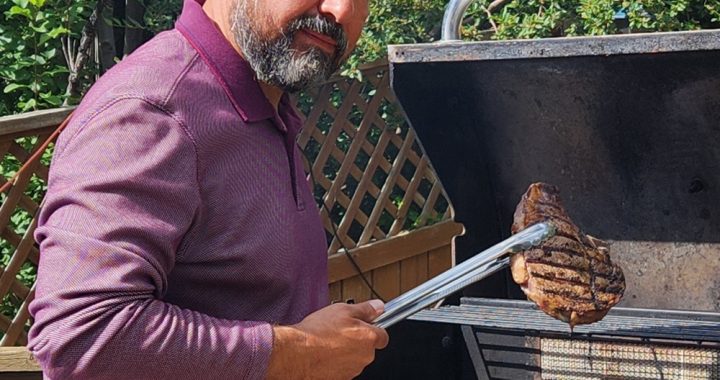Sean McGrath, owner/operator of Round Rock Ranching, a centennial ranch in Vermilion River County, AB, and member of Gentec’s Management Advisory Board, participated as a speaker in the Partnerships in Practice session at RDAR’s Round-Up on June 8, 2023, in Calgary. For those unable to attend in person, we’ve summarized his main thoughts for you below.
“The most important message I wanted to bring was that we can’t present science, knowledge or technology as a how-to manual,” says Sean. “It’s not a linear Step 1, Step 2 process. That doesn’t inspire hearts and minds. It’s about listening and understanding what a potential user wants to accomplish, and then asking whether said science, knowledge or technology can get them there.”
Usually, that means a big shift in thinking on both sides of the table and an equal amount of humility. From the researchers who could spend some more time in the field understanding what works and what doesn’t, and really listening to what producers need so that the receptive audience is ready when The Next Big Thing arrives. And from the producers who are ticklish about trying new stuff or because they’re not clear about the cost/benefit ratio, and asking researchers to explain when they don’t understand. See heading for pithy quote. In fact, helping the Gentec team make those vital connections to producers like him was a key reason for joining the Management Advisory Board.
“I think anger is the leading edge of learning,” says Sean. “There’s no point being offended if the ‘thing’ doesn’t work. Anger indicates a lack of understanding somewhere but we have to fall back on communications or understanding the other point of view to use negative responses to drive positive change. It takes a sustained effort!”
…And communications, and patience. Sean provided a couple of helpful examples. In dairy or grain, technology is about saving labour. Milking robots are more productive than people. If a technology can add $20/head in profit but adds labour, it’s not that fascinating. The tapped-out producer wants something that saves TIME so he can go watch his kids’ ball game.
In beef, however, technology tends to drive production but the case has to be made to justify the investment. Beef producers with ~200 head have an average net income of $18,000/year. For them to make a significant investment in genomics and move the needle to $20,000/year doesn’t change their lives much/at all. Bump it up to $35,000… that’s different. Sometimes, there just isn’t enough money available to take the risk. Which takes Sean back to communications.
“Framing is important. Piquing curiosity is important,” he says. “The truck ad on TV doesn’t talk about brakes, power door locks and four tires because that’s not inspiring. It speaks to lifestyle and possibilities. We have so much to tell that’s not getting out there.”
So what drives uptake? Partly, the early adopters. One of their challenges is that they take on the financial risk themselves. If the innovation works out, they get the rewards earlier and longer… but by the time the innovation is well established, a program comes out that pays the laggards to catch up—like around GHG mitigation on-farm. That can be discouraging. Nonetheless, the peer-to-peer network is a hugely valuable bridge for going that final mile.
“All the formal extension we can afford to do or pay to do is probably 10% as effective as peer-to-peer,” says Sean. “Peer-to-peer says, ‘I know you and trust you. I know you have family pressures. I know the price of canola is in the tank so there’s pressure there, too.’ Connections like these are a great place to start. The challenge is getting the research community to become peers.
Challenge, indeed. Most ag researchers aren’t farm-bred or even local. They don’t speak the same lingo as producers. But not every researcher needs to become a peer. Some just aren’t wired that way, and shouldn’t be forced into situations they’re not equipped for. Circling back to that shift in thinking… producers’ knowledge base is an inch deep and a mile wide. For researchers, it’s the opposite. Both are indispensable. The trick is finding where the two mesh.
As for the laggards, see heading again. That said, anybody who manages a business is accountable for making it successful so it’s up to them to seek out information or work towards their goal or vision. Sean explains with his own example. Round Rock Ranchings’ vision statement is “The Best Beef in a Better World.”
“When technology becomes available, I ask myself, ‘does it move us towards our vision’?” he says. “If No, then I put it aside. If Yes, I look deeper or do some math. Most producers don’t have a formal vision—but they do have a general idea. We need to align them with technology and information that excites them and moves them towards their goals. That’s why the listening piece is so important.”
“Research is about what we don’t know. We’re spending money on it but we don’t know the implications. That’s why we’re doing it.”
Sean McGrath


